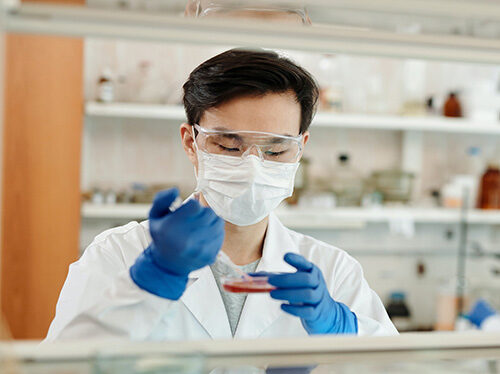Blog: Regulatory
The Clock Ticks for US Food Testing Labs to be LAAF-Accredited
FDA is gradually tightening the rules on food testing labs to mandate that, under certain circumstances, food testing must be performed only by LAAF-accredited laboratories. This article discusses how this affects contract testing labs and how the can comply with the amendments to Food Safety Modernization Act.
13th March 2024

The introduction of a laboratory accreditation program for food testing labs by the U.S. Food and Drug Administration (FDA) is intended to improve the testing of food under certain circumstances. The Food Safety Modernization Act (FSMA) was amended to include the Laboratory Accreditation for Analyses of Foods (LAAF) rule in December 2021 [1]. This amendment identifies the circumstances under which food testing must be performed by LAAF-accredited laboratories [2].
LAAF-accredited Laboratory Program
The roll-out of this program is now starting to take shape. As of January 2024, 28 food laboratories were LAAF-accredited and there were 7 accreditation bodies recognized by the FDA [3]. The FDA is taking a step-wise approach to the rollout. First it recognized a number of accreditation bodies, and now it is encouraging relevant food labs to become LAAF-accredited. When there is sufficient LAAF-accredited laboratory capacity the FDA will require the use of LAAF-accredited laboratories under the identified special circumstances.
What testing is covered under the LAAF final rule?
Not all food labs will need to be LAAF-accredited, but under certain circumstances testing will have to be performed by accredited laboratories. The initial list of prescribed testing includes:
- Testing to support removal of a food from an import alert through successful consecutive testing requirements.
- Testing to support admission of an imported food detained at the border because it is suspected to contain unapproved additives.
- Testing required by existing FDA food safety regulations to address identified food safety problems, such as shell eggs, sprouts and drinking water.
- Testing required by a directed food laboratory order, a new procedure being implemented that will allow the FDA to require use of a LAAF-accredited laboratory to address an identified or suspected food safety problem.
- Testing conducted in connection with certain FDA processes (e.g., testing submitted in connection with an appeal).
The prescribed list is very specific and the majority of QC food testing during manufacturing will not require LAAF-accredited lab status. Contract Laboratories that specialize in food testing on behalf of importers and manufacturers will likely get the most benefit from becoming LAAF-accredited.
The Use of LIMS in LAAF-Accredited Labs
Laboratories seeking LAAF-accreditation must demonstrate ISO 17025 compliance and must show that each food testing method they use is fit for purpose. Many laboratories doing this type of testing will already have ISO 17025 accreditation and have procedures in place to ensure testing is accurate and staff competent to perform the work. However, implementing a Laboratory Information Management System (LIMS) can significantly help to manage ISO 17025 requirements, as this three part article describes.
As an FDA LAAF-accredited laboratory must send results directly to the FDA a LIMS that can create reports in the correct format and forward those to the FDA helps automate and simplify the process. A LIMS will keep a complete, version controlled, record of the testing with a full audit trail that provides surety of results.
Matrix Gemini LIMS is highly configurable, allowing labs to add specific fields to any screen in the workflow. For instance, specific LAAF accredited test methods could be tagged, ensuring that only this subset is used for FDA LAAF reporting. LAAF reporting also requires additional fields to be added including, for example, US Customs reference numbers and references to the specific analytical method used. Matrix can easily be configured to handle these additional fields and to include them in reports and certificates of analysis.
Many contract and in-house food laboratories have already adopted a LIMS and will already be accredited to ISO 17025 requirements. For them the step to become a LAAF-accredited laboratory is not a large one, requiring a little extra data to be captured for LAAF reporting. The key to how difficult that task will be is how easily their chosen LIMS can be adapted, something that has been key to the success of the Matrix Gemini LIMS software.